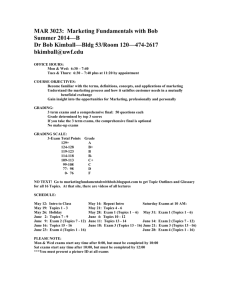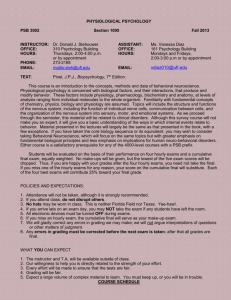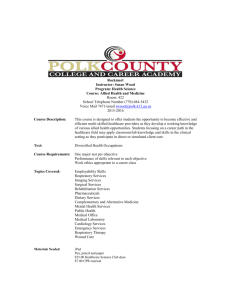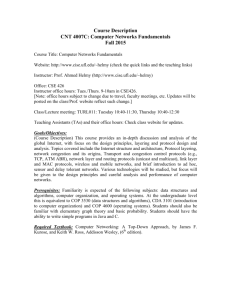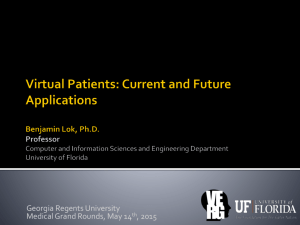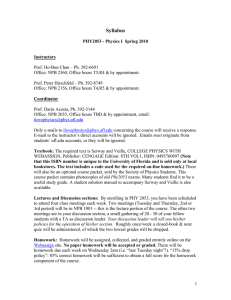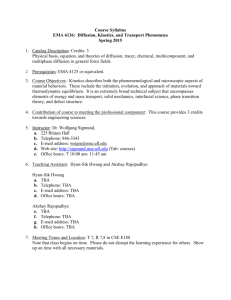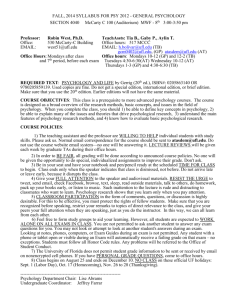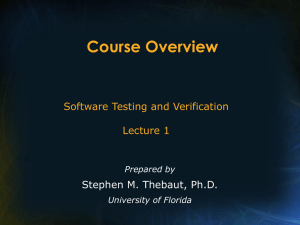here - Mechanical and Aerospace Engineering
advertisement
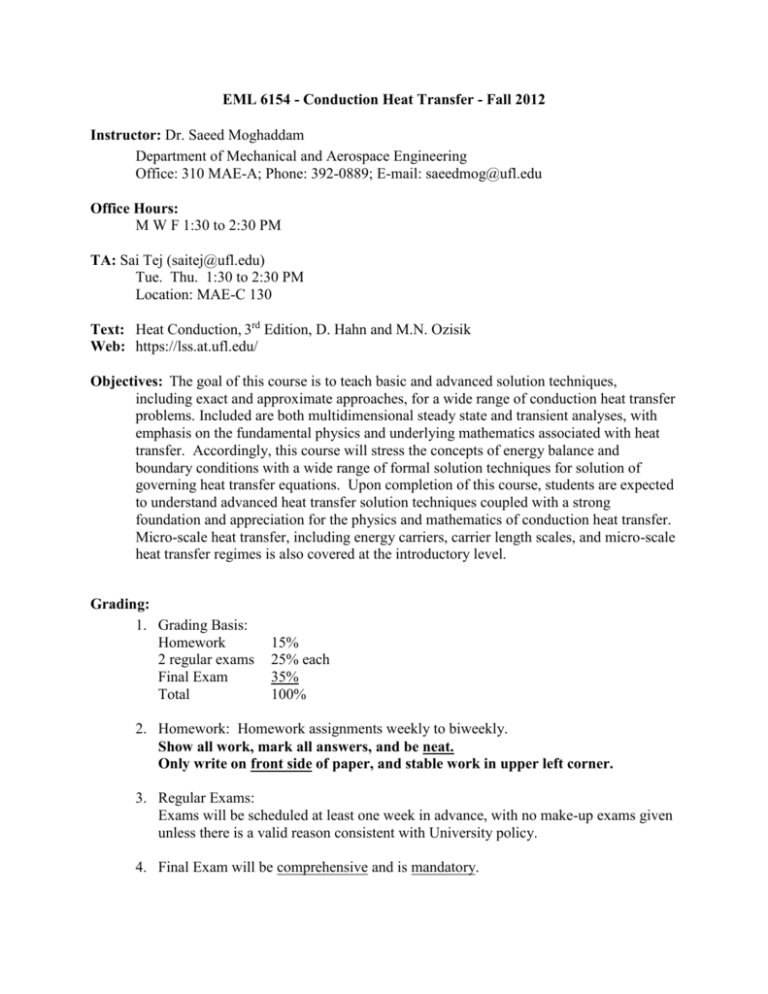
EML 6154 - Conduction Heat Transfer - Fall 2012 Instructor: Dr. Saeed Moghaddam Department of Mechanical and Aerospace Engineering Office: 310 MAE-A; Phone: 392-0889; E-mail: saeedmog@ufl.edu Office Hours: M W F 1:30 to 2:30 PM TA: Sai Tej (saitej@ufl.edu) Tue. Thu. 1:30 to 2:30 PM Location: MAE-C 130 Text: Heat Conduction, 3rd Edition, D. Hahn and M.N. Ozisik Web: https://lss.at.ufl.edu/ Objectives: The goal of this course is to teach basic and advanced solution techniques, including exact and approximate approaches, for a wide range of conduction heat transfer problems. Included are both multidimensional steady state and transient analyses, with emphasis on the fundamental physics and underlying mathematics associated with heat transfer. Accordingly, this course will stress the concepts of energy balance and boundary conditions with a wide range of formal solution techniques for solution of governing heat transfer equations. Upon completion of this course, students are expected to understand advanced heat transfer solution techniques coupled with a strong foundation and appreciation for the physics and mathematics of conduction heat transfer. Micro-scale heat transfer, including energy carriers, carrier length scales, and micro-scale heat transfer regimes is also covered at the introductory level. Grading: 1. Grading Basis: Homework 2 regular exams Final Exam Total 15% 25% each 35% 100% 2. Homework: Homework assignments weekly to biweekly. Show all work, mark all answers, and be neat. Only write on front side of paper, and stable work in upper left corner. 3. Regular Exams: Exams will be scheduled at least one week in advance, with no make-up exams given unless there is a valid reason consistent with University policy. 4. Final Exam will be comprehensive and is mandatory. 5. Grading scale: If necessary, a curve will be applied to the overall course grade only, and will be determined, in part, by the class average and class distribution. A 10-point scale will be used as a starting point (i.e. A 90%, B 80%, etc.). Course Outline: 1) Formulation and exact solutions in rectangular and curvilinear coordinate systems: Chapters 1 to 5. Exam 1. 2) Special solution techniques: Chapters 6 to 9. Exam 2. 3) Phase-change problems 4) Approximate methods 5) Micro- and nano-scale conduction heat transfer 6) Final Exam on assigned period. Final exam is comprehensive. (Friday, December 14, 2012). Holidays: UF Recognized Holidays (no class): Monday, Sept. 3 (Labor Day) Friday, Nov. 9 (UF Homecoming) Friday, Nov. 12 (Veterans Day) Friday, Nov. 23 (Thanksgiving) Class Policies: 1. Regular class attendance is expected. Class begins promptly. 2. All homework assignments and projects are to be turned in at the beginning of the designated class period. 3. SOME collaboration is allowable on homework, but each student is responsible for performing the bulk of his or her own homework assignment. The use of solutions from previous semesters is NOT acceptable and is considered cheating. 4. NO collaboration is allowed on exams. Academic Honesty: All students admitted to the University of Florida have signed a statement of academic honesty committing them to be honest in all academic work and understanding that failure to comply with this commitment will result in disciplinary action. This statement is a reminder to uphold your obligation as a student at the University of Florida and to be honest in all work submitted and exams taken in this class and all others.
